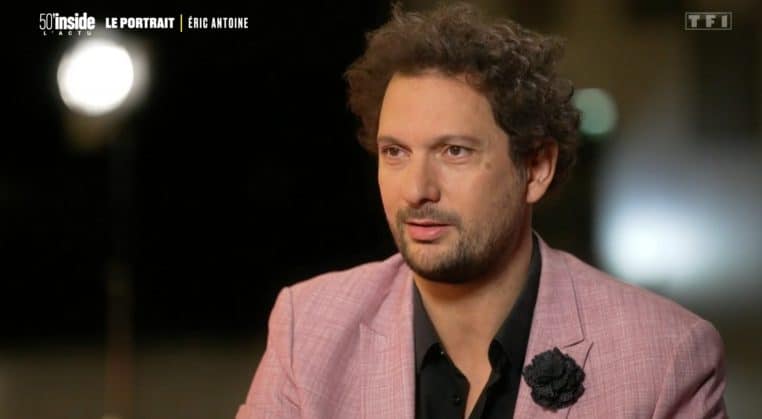The Post-Trump Effect: A Global Battle For US Scientific Expertise

Table of Contents
Erosion of Trust and Funding in US Science
The Trump administration's policies and rhetoric significantly undermined the foundations of US scientific research. A climate of distrust and uncertainty was created, impacting funding, morale, and the very fabric of scientific integrity. This "Post-Trump Effect" reverberates through the scientific community today.
- Decreased Funding: Budget cuts targeted specific research areas crucial to addressing global challenges. Climate change research, for example, suffered significant setbacks, hindering efforts to understand and mitigate its devastating effects. Public health research, already strained, faced additional funding limitations, weakening the nation's preparedness for future pandemics.
- Attacks on Scientific Consensus: The administration frequently dismissed or downplayed established scientific consensus on issues like climate change and the efficacy of vaccines. This disregard for evidence-based findings eroded public trust in science and hampered efforts to implement effective policies.
- Suppression of Scientific Data: Instances of suppression or manipulation of scientific data emerged, undermining the integrity of government agencies and fostering an environment of fear and self-censorship among researchers.
- Impact on Morale: The combination of decreased funding, attacks on scientific integrity, and a general atmosphere of hostility towards scientific expertise had a significant negative impact on the morale and motivation of scientists across various disciplines. Many felt their work was undervalued and under threat.
The resulting uncertainty and lack of trust in US scientific institutions created a ripple effect, hindering research progress and innovation. Surveys from the time indicated a sharp decline in scientist confidence in the government's commitment to scientific research.
The Global Scramble for Scientific Talent – A Brain Drain?
The erosion of trust and funding in US science triggered a significant outflow of scientific talent. Researchers, seeking more supportive research environments and greater freedom to pursue their work, emigrated to other countries. This "brain drain" represents a substantial loss for US scientific leadership.
- Attractive Destinations: Countries like Canada, the United Kingdom, Australia, and Germany have become increasingly attractive destinations for US scientists, offering better funding opportunities, more stable political climates, and greater research freedom.
- Reasons for Emigration: Scientists cited concerns about funding cuts, political interference in research, and the overall hostile environment towards science as major reasons for leaving the US. The perceived lack of support for scientific endeavors weighed heavily in their decisions.
- Impact on US Innovation: The emigration of talented scientists is severely impacting US scientific innovation and global competitiveness. Losing these researchers represents a significant loss of intellectual capital and expertise, hindering the nation's ability to compete in the global scientific arena.
This "brain drain" poses a serious threat to the long-term health and competitiveness of the US scientific enterprise.
International Collaboration and Competition: A Shifting Landscape
The perceived decline in US scientific influence has significantly altered the landscape of international collaboration and competition. The once dominant position of the US in scientific research is being challenged, leading to a more complex and competitive global ecosystem.
- Increased Competition: The global competition for research grants and funding has intensified, with other nations investing heavily in their own scientific infrastructure and research programs.
- Shifting Alliances: Traditional scientific alliances and partnerships are shifting, as countries seek new collaborations with emerging scientific powerhouses.
- Rise of New Powerhouses: Countries like China have emerged as significant players in scientific research, investing heavily in research and development and attracting top scientific talent from around the world.
These shifts in international collaborations have long-term implications for global scientific progress and geopolitical dynamics.
Rebuilding Trust and Attracting Top Talent: Strategies for the Future
Reversing the negative "Post-Trump Effect" on US science requires a multi-pronged approach focusing on rebuilding trust, increasing funding, and creating a more supportive environment for scientists.
- Increased Investment: Significant increases in funding for scientific research and development are crucial, ensuring adequate resources for addressing pressing global challenges.
- Promoting Integrity: A culture of scientific integrity and transparency must be cultivated, fostering trust in scientific institutions and ensuring the free flow of scientific information.
- Strengthening Collaborations: Renewed efforts are needed to strengthen international collaborations, fostering partnerships that benefit both the US and the global scientific community.
- Supportive Environment: Creating a welcoming and supportive environment for scientists, free from political interference and characterized by respect for scientific expertise, is essential to attracting and retaining top talent.
Policymakers and scientific institutions must work collaboratively to implement these strategies to ensure the future of US scientific expertise.
Conclusion: The Future of US Scientific Expertise – A Call to Action
The "Post-Trump Effect" has had a profound and lasting impact on US scientific leadership. The global competition for scientific talent is fierce, and the loss of US scientific expertise poses a significant threat to national competitiveness and global scientific progress. We must act decisively to reverse this trend.
We urge you to contact your representatives and advocate for increased investment in scientific research and development. Support policies that promote scientific integrity, transparency, and international collaboration. By working together, we can secure the future of US scientific expertise and reclaim its rightful place as a global leader in scientific innovation. The future of US scientific expertise, and indeed global progress, depends on our collective action.

Featured Posts
-
 Relatable Jeff Goldblums Viral Oscar Photo Check
Apr 29, 2025
Relatable Jeff Goldblums Viral Oscar Photo Check
Apr 29, 2025 -
 Pw Cs Controversial Exit Strategy A Dozen Countries Affected
Apr 29, 2025
Pw Cs Controversial Exit Strategy A Dozen Countries Affected
Apr 29, 2025 -
 Ais Cognitive Limits An Examination Of Current Ai Technology
Apr 29, 2025
Ais Cognitive Limits An Examination Of Current Ai Technology
Apr 29, 2025 -
 2025 Porsche Cayenne Interior And Exterior Images
Apr 29, 2025
2025 Porsche Cayenne Interior And Exterior Images
Apr 29, 2025 -
 Skoleprestasjoner Og Adhd Medisin Hva Sier Fhi
Apr 29, 2025
Skoleprestasjoner Og Adhd Medisin Hva Sier Fhi
Apr 29, 2025
Latest Posts
-
 Eric Antoine Qui Est La Femme Qui L Accompagnait A La Premiere De Son Spectacle
May 12, 2025
Eric Antoine Qui Est La Femme Qui L Accompagnait A La Premiere De Son Spectacle
May 12, 2025 -
 Le Spectacle D Eric Antoine Une Ancienne Miss Meteo Parmi Les Invites
May 12, 2025
Le Spectacle D Eric Antoine Une Ancienne Miss Meteo Parmi Les Invites
May 12, 2025 -
 Eric Antoine Une Ancienne Miss Meteo A Ses Cotes Lors De La Premiere
May 12, 2025
Eric Antoine Une Ancienne Miss Meteo A Ses Cotes Lors De La Premiere
May 12, 2025 -
 Eric Antoine Et Sa Compagne Apparition Remarquee A La Premiere Parisienne
May 12, 2025
Eric Antoine Et Sa Compagne Apparition Remarquee A La Premiere Parisienne
May 12, 2025 -
 Eric Antoine Vie Privee Divorce Et Nouvelle Relation Avec Une Presentatrice M6
May 12, 2025
Eric Antoine Vie Privee Divorce Et Nouvelle Relation Avec Une Presentatrice M6
May 12, 2025
